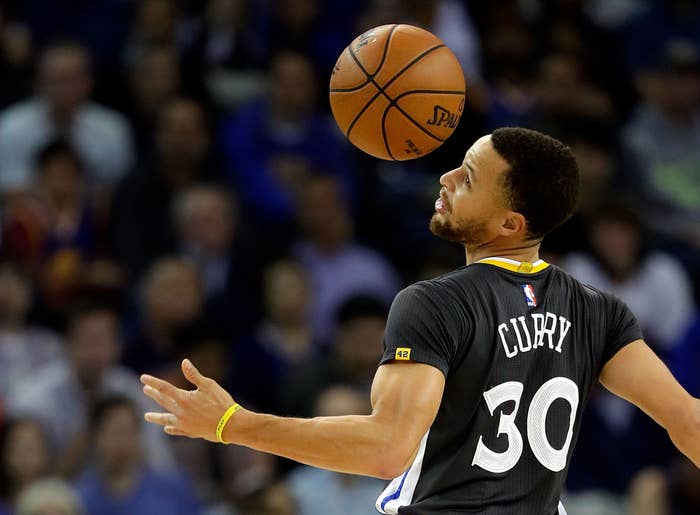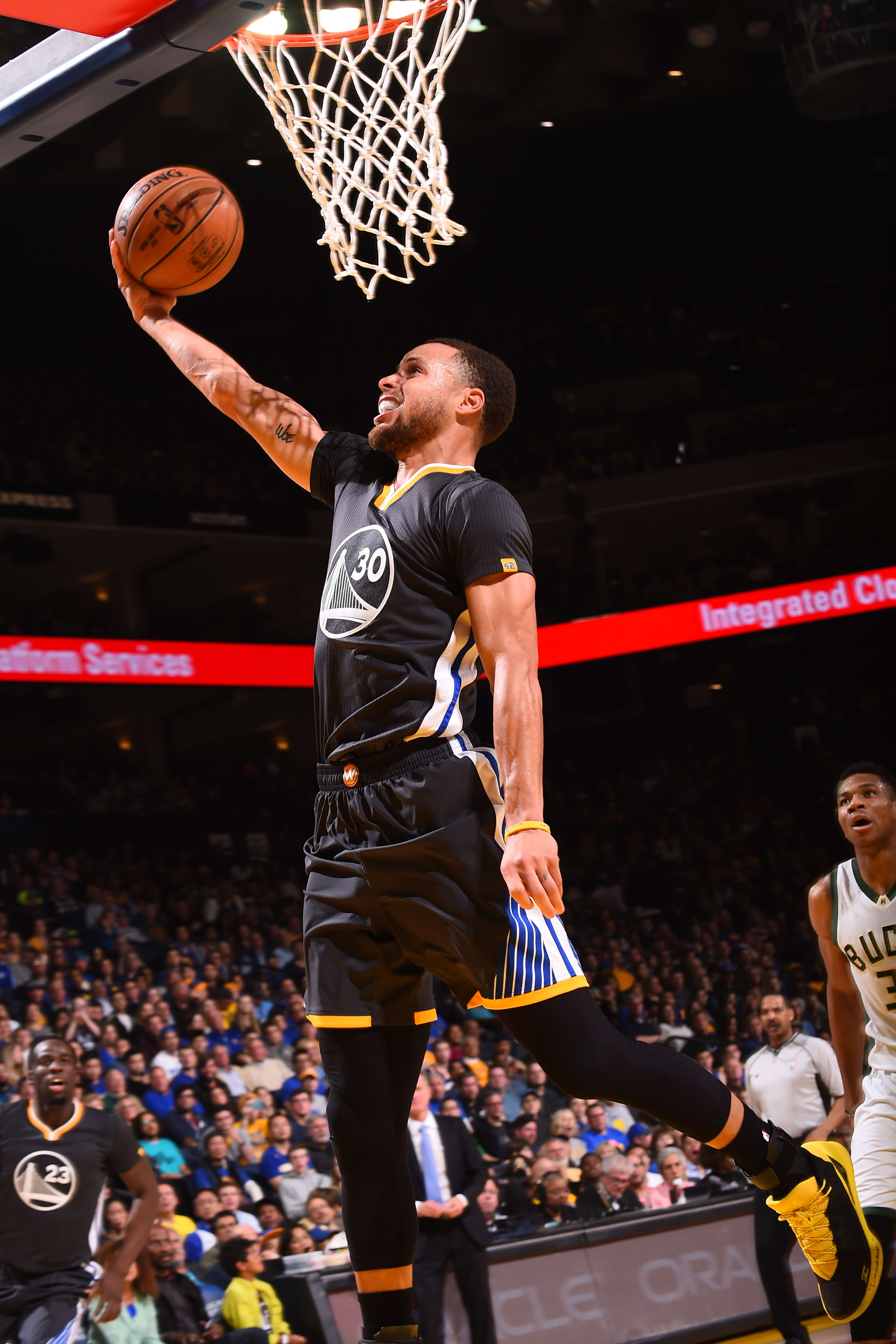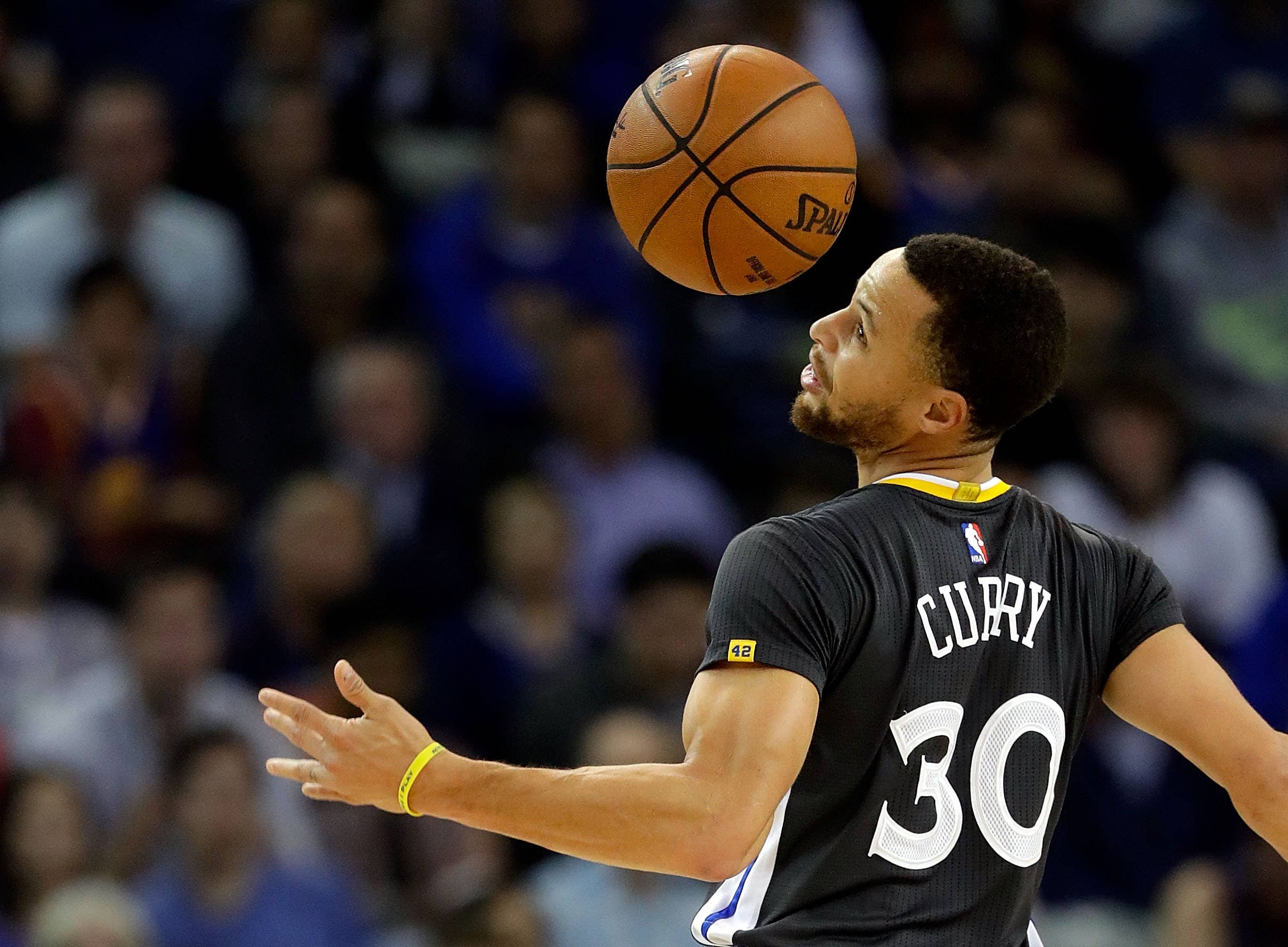
When the Stephen Curry backlash came—and come it has—it arrived in the form of anger that there hadn't been more Stephen Curry backlash already. Wait long enough for outrage, and even if there isn’t a triggering event, there will eventually be outrage over there not being outrage. It is a self-fulfilling prophecy of the worst kind, fueled by fatigue as well as the sad fact that the only thing more fun than building sports figures up is tearing them down.
Go back far enough, and Curry’s career has been something of a roller coaster. Yes, he was born into privilege. As the son of former NBA player Dell Curry he grew up around NBA players, locker rooms and arenas. But he was lightly recruited out of high school—he didn’t even get a scholarship offer from dad’s alma mater, Virginia Tech. And despite playing himself into a lottery pick after three years at Davidson, he had his formative years in the NBA derailed by a series of ankle injuries. The Warriors gambled he’d recover, signing him to a four-year, $44 million contract in 2013 that proved to be the bargain of the century.
If Curry’s first MVP season was transcendent, his second MVP season transcended even that. If his rise seemed absurdly meteoric, that’s only because it was. He became an All-Star for the first time in 2014, an MVP for the first time in the following season when he hit a then-NBA record 286 threes, just missing posting a 40/50/90 season. His Warriors went an NBA-best 67-15 and went on to win the title. The next season? He did everything better. Curry hit an absurd 402 threes and hit them at a higher percentage, posted his first 40/50/90 campaign, led the league in scoring at 30.1 ppg (and steals, at 2.1), and guided the Warriors to a record 73-win season. They faltered in the NBA Finals, but before that he was named the unanimous MVP— another first.
Nothing in that preceding paragraph should come as news. But if anyone is wondering why Curry hasn’t taken more criticism recently, those numbers bear closer review. Over the course of two seasons, he hit nearly 700 3-pointers at a 45 percent clip, led the Warriors to a 140-24 record, played in two NBA Finals, and missed a total of five regular-season games. And in the process he turned even the mundane pregame shoot-around into a must-watch event. Yes, he faltered in the most recent Finals as the Warriors, um, allowed a historic comeback. And he was not the MVP of his first Finals—although his line of 26/6/5 and 38 percent from three wasn’t bad, at least for a mortal.
This season, Curry hasn’t been mentioned much in MVP conversations, and he shouldn’t be. Russell Westbrook averaged a triple-double while leading the league in scoring. James Harden transitioned to point guard and led the league in assists. Kawhi Leonard reprised his role as the league’s premier perimeter defender while posting the best Spurs scoring season in 15 years. LeBron James continues to be, well, LeBron James. By comparison, Curry’s 25.4/6.6/4.5 and (potentially) second straight 40/50/90 isn’t quite there. And even if it was, three straight MVPs might be impossible in this era. Michael Jordan never did it. Suggestions that he’s fallen off, however, seem to be a bit premature.

As the Warriors romped last season, it led to much (or at least some) thinkpiece speculation that they were ushering in a wholesale change in the NBA, that 3-pointers would come to dominate everything. And while kids may be out there emulating Curry, the NBA hasn’t changed all that much—for every team like the Rockets, who launch 40 threes a game, there’s still a Bulls or a Timberwolves. All that’s really changed is how people perceive the Warriors and their star-studded roster.
This, of course, is where we need to mention Kevin Durant, who signed with the Warriors last offseason. Traditionally the best team has not signed the best free agent, which only happened in this case thanks to a rocketing salary cap—and the fact that the two-time reigning MVP was locked in at $11 million a year. This reflected poorly on the Warriors with casual NBA fans, who bemoaned the rich getting richer, and an already great team strip-mining one of its few true rivals. It also set them up to fail, to a degree, because despite Durant’s greatness, there was little chance they would top their 73-9 mark. They would get better, but their record would get worse. And Curry would have virtually zero chance of topping his own record-breaking season. In setting themselves up for greater success long term, they were setting themselves up to fail.
The Warriors won’t win 70 games this season, and Curry won’t hit 400 3-pointers. But they’ve already won 66, and Curry has hit 319 threes, the second-highest single-season total of all time. It will be his fifth straight season leading the league in 3-pointers made. The team heads into the postseason without a true MVP candidate, but as the overwhelming favorites to win the West and make it to a third straight NBA Finals. And with Durant seemingly recovered from a knee injury that sidelined him for 19 games, they should be favored there too.
So in the meantime, a little Curry blowback is a relatively small matter. If other NBA stars have issues with him, as Marcus Thompson implies in his book on Curry’s improbable rise, Golden, what of it? Westbrook thrives on adversity, and LeBron rightfully believes—jersey sales and MVP votes be damned—that he’s never relinquished the throne to begin with. But like this year’s MVP race, superstardom in today’s NBA is no longer a case where one player is head and shoulders above the rest. Instead there are many thrones, occupied by a variety of talents: LeBron, Harden, Westbrook, Kawhi, Durant, and yes, Curry too.
If Curry has received less criticism than the rest, don’t worry, it’s coming. Yes, Curry is 29, but his time on top has been relatively short. James entered the league as a No. 1 pick and a can’t-miss prodigy who has been atop the mountain for nearly 15 years. By comparison, Curry’s reign has hardly begun. And his critics-in-the-making have had little to call him out on. He hasn’t left a team, or even gone through a contentious free agency. Instead he’s been an underpaid underdog, someone in the unique position of having established himself as a lock Hall of Famer before even signing a max contract.
So would-be Curry detractors, there is no need to start now. Just wait. Wait until next year when he’s 30 and making $30 million-plus per. Wait until the year after that when his productivity starts to inevitably slip even as his salary skyrockets. Again, we build players up in order to knock them down, and to paraphrase Marsellus Wallace, most in this profession don’t age like wine. Right now Curry is in something of a hater-proof bubble, one that nearly every superstar has enjoyed. Because his success has come later than most, it seems like his free ride has lasted longer. But it hasn’t. And it won’t.


